As agricultural areas become more populated the risk of humans contracting diseases from animals increases. How this happens and its impact on security was the focus of a recent “Comprehensive Health Security” workshop held in the Lao People’s Democratic Republic. The first of its kind, the workshop was co-hosted by the Asia-Pacific Center for Security Studies and the Lao PDR Ministry of Health.
All four of the states included in the Lower Mekong Initiative participated through representation from the ministries of Public Health, Defense, Agriculture, Foreign Trade and Crisis Management. In total, 36 participants from Thailand, Vietnam, Cambodia and Lao PDR, as well as representatives from regional and international organizations, such as the World Health Organization and USAID, convened for the workshop in Vientiane.
The workshop, held from June 12-15, focused on building a strategy for regional security cooperation connected to zoonotic (transmitted between animals and humans) disease outbreaks among the Lower Mekong countries. With over 70 percent of newly emerging infectious human diseases caused by human contact with animals, such as SARS, swine flu and avian flu, participants discussed policy recommendations for addressing security threats raised by health issues.
The key interdependency between animal, environment and human health is a concept that has come to be characterized as One Health, which participants recognized as an important security issue. The four-day multilateral workshop concluded with eight recommendations that participants agreed to attempt to implement in their respective regions.
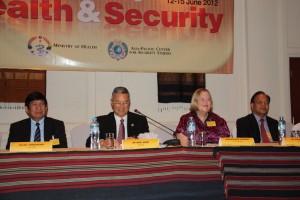 First, participants agreed that they should each advocate the strategic nature of One Health. One possibility is to expand the South East Asian One Health University Network, conceived by Indonesia and Vietnam, to all of the ASEAN member states. Second, Lower Mekong countries should develop common strategies and standardize health planning from the international to the inter-ministerial levels. Third, countries should strengthen networks, with which APCSS hopes to assist via Communities of Interest, a broad-based global collaboration including a virtual platform where alumni and workshop participants can maintain dialogue. Fourth, One Health planning and implementation requires a whole of society engagement due to its multisectoral and transdisciplinary nature. Fifth, education and training pertaining to One Health should be harmonized with mainstream health education. Sixth, public-private partnerships should be encouraged, so Ministries of Health, Agriculture and Finance, the Asian Development Bank and the World Bank should collaborate on this emerging security issue. Seventh, the government should have open dialogues with the public on health issues. Finally, countries should conduct regular simulation exercises and training to ensure preparedness.
First, participants agreed that they should each advocate the strategic nature of One Health. One possibility is to expand the South East Asian One Health University Network, conceived by Indonesia and Vietnam, to all of the ASEAN member states. Second, Lower Mekong countries should develop common strategies and standardize health planning from the international to the inter-ministerial levels. Third, countries should strengthen networks, with which APCSS hopes to assist via Communities of Interest, a broad-based global collaboration including a virtual platform where alumni and workshop participants can maintain dialogue. Fourth, One Health planning and implementation requires a whole of society engagement due to its multisectoral and transdisciplinary nature. Fifth, education and training pertaining to One Health should be harmonized with mainstream health education. Sixth, public-private partnerships should be encouraged, so Ministries of Health, Agriculture and Finance, the Asian Development Bank and the World Bank should collaborate on this emerging security issue. Seventh, the government should have open dialogues with the public on health issues. Finally, countries should conduct regular simulation exercises and training to ensure preparedness.
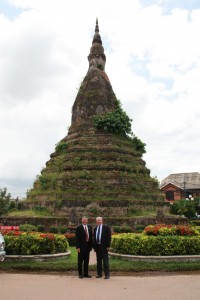
While One Health emphasizes the inter-dependency of veterinary, environmental and human health, participants noted the under representation of veterinary and environmental specialists and have already indicated an interest in attending a second conference with more focus on the veterinary aspects of One Health.
The Comprehensive Health Security workshop was well received and marked the beginning of a growing initiative to recognize health security as an essential component of national and transnational security. The workshop attracted the attention of Mr. Chris Castro, Director of Multilateral Affairs, U.S. Department of State, as well as Ambassador David Carden, the U.S. Ambassador to ASEAN. Dr. James Campbell, a co-academic lead with Professor Jessica Ear, confidently proclaims the workshop to be a “tremendous, groundbreaking success.”
-end-
The Asia-Pacific Center for Security Studies is a Department of Defense academic institute that addresses regional and global security issues. Military and civilian representatives, most from the U.S. and Asia-Pacific nations, participate in a comprehensive program of executive education, professional exchanges and outreach events, both in Hawaii and throughout the Asia-Pacific region. The Center supports the U.S. Pacific Command by developing and sustaining relationships among security practitioners and national security establishments throughout the region. Its mission is to build capacities and communities of interest by educating, connecting, and empowering security practitioners to advance Asia-Pacific security. It is one of the Department of Defense’s five regional security studies centers.
Since opening in 1995, APCSS has had representatives from 104 countries and territories, and four international organizations attend courses at the Center for a total of 6,548 alumni.


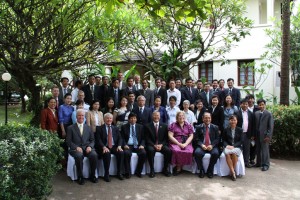
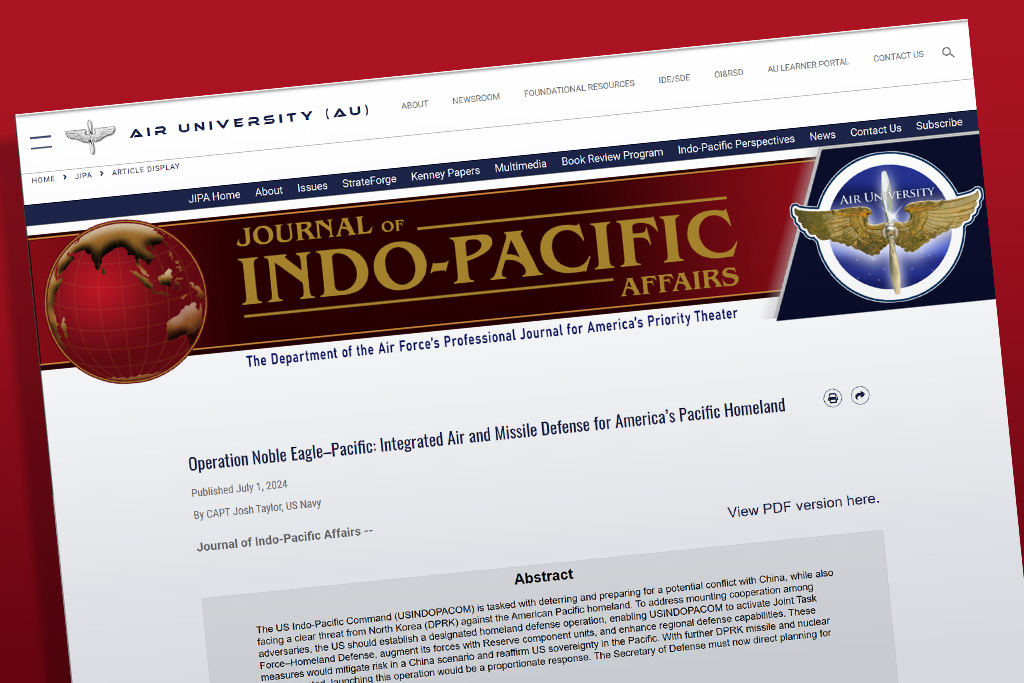
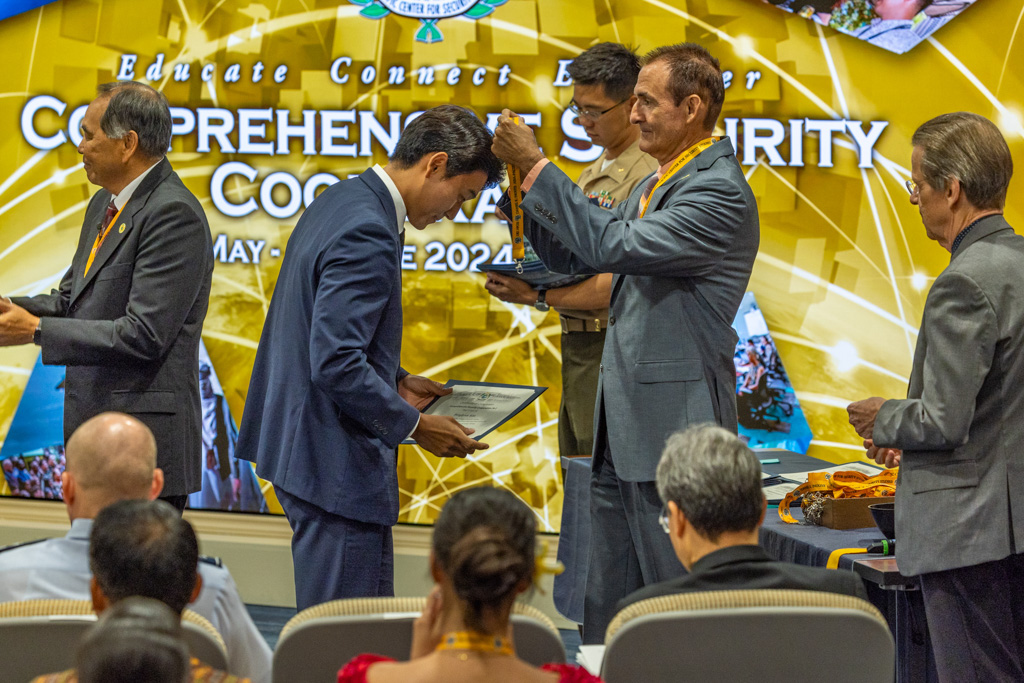
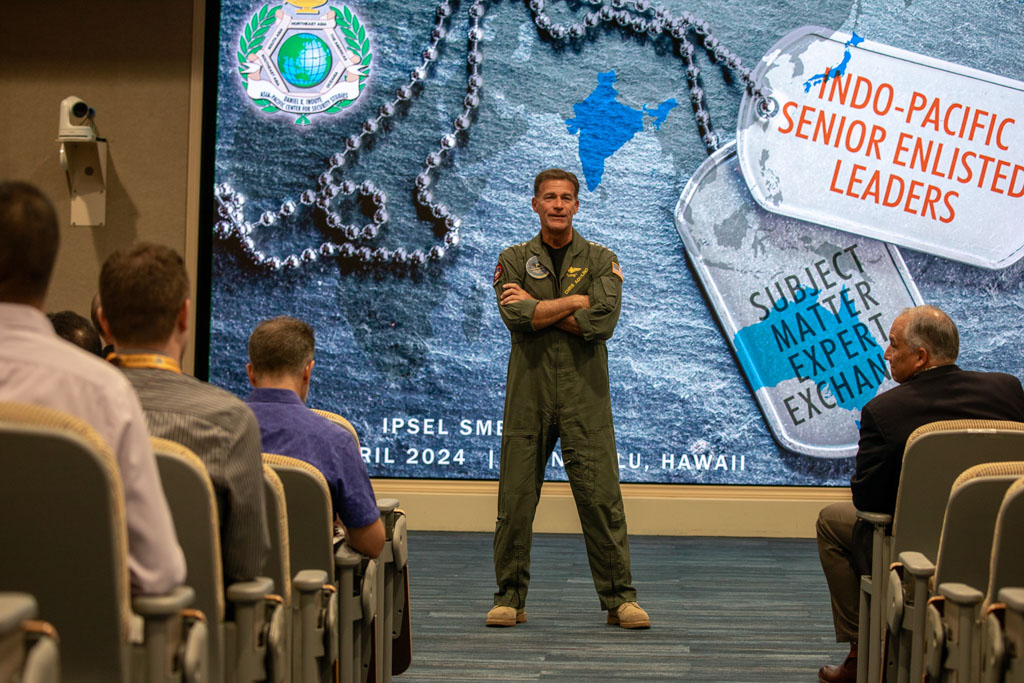




Leave A Comment